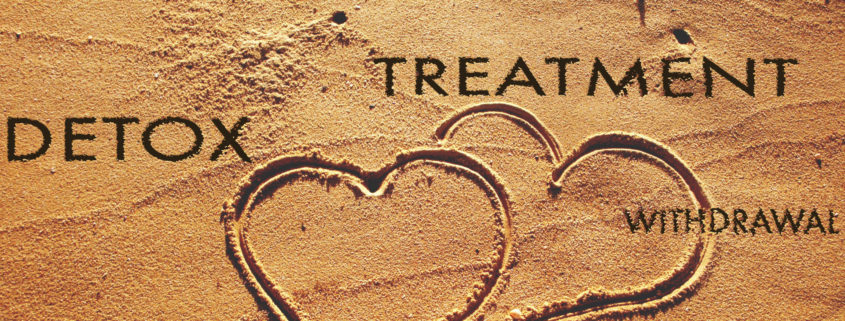There are a wide range of alcohol withdrawal symptoms (AW) that range from relatively mild to life-threatening, depending on a variety of factors. Recommendations for acute detox, treatment, and ongoing recovery strategies are contingent on individual level variables such as the individual’s overall health, severity and duration of alcohol and other substance use, psychosocial supports, and motivation to engage in treatment. External variables include the availability of resources and financial resources.
Symptoms of acute alcohol withdrawal typically emerge between 6 to 48 hours after an individual reduces their alcohol intake, but there is a great deal of variability as to when any individual may experience the onset of withdrawal due to their unique histories and health. The more alcohol the individual has been consuming, the more severe the withdrawal symptoms are likely to be. Mild to moderate, non-life threatening psychological symptoms may include depression, irritability, nervousness, moodiness, and unclear thinking. These symptoms may last for up to several weeks. Physical symptoms can include headache, nausea, decreased appetite, sweating, elevated heart rate, clammy hands/skin, sweating and insomnia. The most severe form of alcohol withdrawal is called Delirium Tremens, commonly referred to by recovering individuals and healthcare professionals as “the DTs”. These symptoms can include significant disorientation, intense agitation, cardiac dysregulation (uneven or elevated heart rate), fever, hallucinations, severe sleep disturbance, restlessness, and seizures, in addition to varying degrees of the other physical and psychological symptoms of more moderate withdrawal.
Severe alcohol withdrawal symptoms (regardless of whether or not an individual meets criteria for Delirium Tremens) can be lethal. Over time, the body attempts to compensate for the depressive effects of alcohol on the central nervous system by producing higher levels of certain hormones and neurotransmitters (naturally occurring chemicals that help the body regulate life-sustaining, autonomic systems and processes such as breathing). If a person who has been consuming significant amounts of alcohol on a regular basis suddenly stops doing so, those elevated levels of hormones and chemicals are still active. These individuals are then at risk of heart attack, stroke, lethal dehydration, deadly choking on vomit, and fatal errors in judgement.
There are a number of models for safely detoxing from alcohol under medical supervision, including outpatient monitoring and treatment and intensive inpatient care, where detoxing individuals are monitored closely and also may be prescribed medications and other interventions to help stabilize them against the dangers of the more severe symptoms. Inpatient detox treatment is considered the highest level of safety as participants are under twenty four hour observation and care by medical specialists. Some communities offer hybrid detox opportunities that do not provide medical management, but do provide round the clock observation of participants by medical professionals who can intervene and escalate the level of care and intervention if it is warranted or the individual’s symptoms worsen. Mild withdrawal symptoms that are unpleasant but do not pose medical risks may be managed through the assistance of common medications prescribed on an outpatient basis by the individual’s primary care provider, and in conjunction with participation in appropriate outpatient treatments for substance dependence.
Once and individual has been medically stabilized and is no longer experiencing dangerous psychological and/or physical withdrawal symptoms, they should immediately be established in a therapeutic program for long-term recovery engagement and support. There are a wide range of clinical treatment programs available in individual and group treatment formats, and some of these programs offer comprehensive services including medication management and ancillary services such as peer support groups and other mental health services. Often, alcohol dependence has created a myriad of other difficulties in an individual’s life, and therapy can help chart a course towards addressing emotional and relational issues that have resulted from and/or contributed to the alcohol dependence. The support of friends, family, and colleagues is frequently the determining factor in getting an individual to commit to treatment, and the involvement on one’s community can be a critically important part of their recovery success.
Treatment for alcohol dependence is available in a number of different formats, and there is a great deal of variability between individuals as to what may be most helpful to them. Clinical treatment programs are those that are facilitated by recovery professionals who are licensed by the state to provide evidenced-based addictions treatment protocols, and frequently are housed in a medical or behavioral health setting. Clinical treatment is available in individual and group formats. 12 step and peer support programs such as Alcoholics Anonymous (AA) and Al Anon are group sessions facilitated by other individuals in recovery or their family members (Al Anon is for family members), and offer group and individual support (sponsors) to participants. AA and Al Anon have been vitally important parts of recovery for many individuals.
“The Wall” is an expression in recovery that refers to negative feelings arising in an individual who has been sober and feeling well for several months. The individual may suddenly feel as if they have stopped making progress in treatment, after the initial enthusiasm of doing well. “Hitting the wall” often occurs when the an individual who has been feeling the pleasant effects associated with new sobriety (feeling physically and mentally better due to having passed through withdrawals; increased feelings of well-being associated with improvements in physical and mental health due to abstaining; other positive feelings associated with sobriety after heavy and protracted use including social approval and improved functioning overall) is forced to reckon with other, more difficult and lingering issues that may have been obscured by or contributing to the substance abuse. Often, alcohol has been serving as a means of avoiding very painful emotional realities, and facing these issues sober often seems daunting. The “honeymoon” feelings of new sobriety may seem to have held false promise when individuals are faced with the very serious personal, legal, and financial consequences of alcohol dependence and misuse.
Sometimes individuals who have been sober for short or extended periods of time (even years) relapse, which means they briefly go back to using alcohol (or any other substance from which they have been abstaining for an extended period of time). Relapse can happen due to any one of a number of triggering events (which are not necessarily stressors or distress). Regardless of what precipitates a relapse, this experience frequently elicits strong feelings of guilt, shame, embarrassment, hopelessness, failure, and depression. While regrettable, relapse is a common event for individuals in recovery, and relapsing does not mean that a person is “back at square one” or has in any way “failed” at sobriety. It is imperative that the treatment professionals and personal supports are compassionate and encouraging in the event an individual relapses, as additional guilt and feelings of failure most likely will exacerbate the depth and extent of the relapse. It is important to encourage individuals to immediately resume treatment and continue on their recovery work.
Being established with and engaged a supportive recovery community of peers and professionals can help individuals navigate the challenges of recovery and of dealing with life stressors without the self-medicating and numbing effects of alcohol. Different treatment models have proven helpful for different individuals, and often, it is a combination of supports (medical, professional, peer, 12-step, personal) working collaboratively that offer the most promising pathway to recovery from alcohol dependence.
<a href = “https://couplesrehab.com/services/detox/”>LEARN MORE about our detox program</a>



